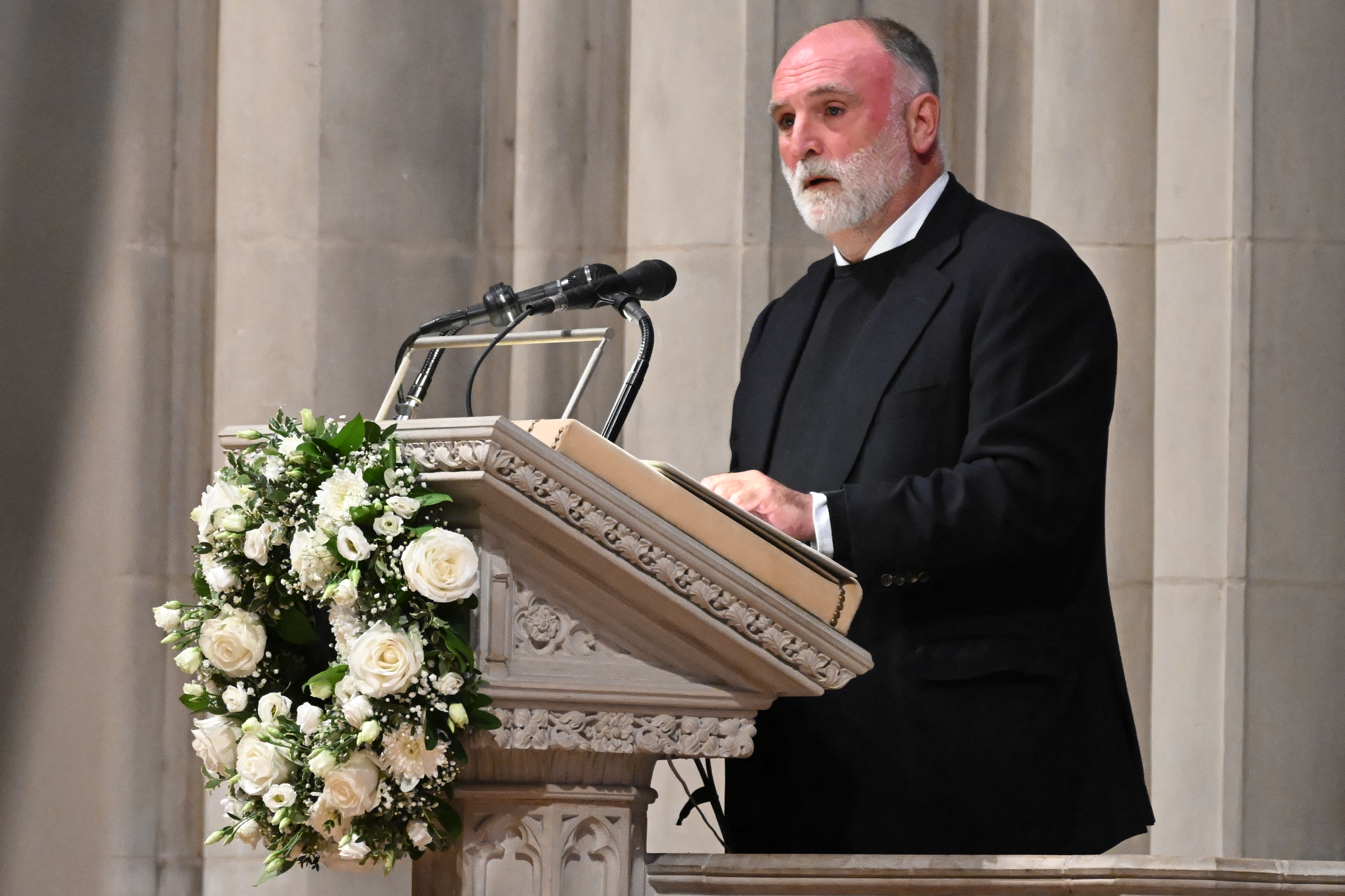When most Americans walk down the aisle and say I do, they think that love will last forever.
But a News4 I-Team investigation found countless Americans have ended up duped by foreigners looking for a fast-track into our country. And they say the scheme doesn't stop with marriage fraud.
American citizens say some immigrant spouses use a legal loophole to keep from being investigated and instead end up with legal status to remain in the United States.
A military officer, who asked to be identified only as "Tony," told the News4 I-Team he realized he'd been duped just a week after his marriage to a Russian woman named Natalia.
"I hit the lottery; I'd found the woman of my dreams," said Tony of their brief courtship.
Tony said he met Natalia in Maryland after the young woman was brought to the United States by another man, who then refused to marry her.
Tony said he and Natalia immediately started spending as much time together as they could, and married after about a month and a half of dating.
Local
Washington, D.C., Maryland and Virginia local news, events and information
"It was deeply from the heart," said Tony. "Only to turn around and find out that I had completely been taken advantage of and lied to."
He said in the few days it took to get them an apartment they could share, Natalia disappeared, instead moving back in with the boyfriend who'd first brought her to the U.S.
"I was humiliated beyond belief. To me, this was worse than being left at the altar," said Tony.
But his story doesn't end there. Tony said a couple of months after she vanished, Natalia was back, begging to stay with him and claiming that old boyfriend was abusing her. Tony said he allowed her to stay with him temporarily.
"Out of the goodness of my heart," he added. "Yes, I'm an idiot."
Tony said things got even stranger, for example, when Natalia intentionally dumped a bowl of cereal on his carpet right in front of him.
"She tried everything she could to get me to lose control, to lose my temper," said Tony, adding that his military training and experience helped him keep his cool.
He said Natalia was not successful in getting a police report against him, but not for a lack of trying. He said she once called the police to report that Tony’s video game was too violent and scaring her.
"It was like somebody flipped a light switch. All of a sudden, this romantic, sexy, loving young lady turned into the most evil, nasty person you could meet," said Tony.
Now he thinks he knows why.
"She gets a visa based off of perceived domestic abuse," said Tony. "If there is just a mere allegation they're going to grant them status to stay."
He's referring to a provision of the Violence Against Women Act (VAWA), by which an immigrant is entitled to legal assistance, benefits, even a fast-track to permanent residence in the United States, after claiming abuse by their spouse.
Tony said when he tried to tell investigators that he was, in fact, the victim of marriage fraud, it didn't matter.
"They would not look at it," he said, referring to his efforts to contact U.S. Citizenship and Immigration Services. "I was really, really disappointed in our immigration laws."
The I-Team has spoken with roughly half a dozen families who claim to have similar stories of an American thinking they were in love, only to be duped by a foreigner looking for a fast-track into our country.
"I've had engineers, doctors, lawyers, dentists you name it," said John Sampson, a retired ICE agent, who now runs a consulting firm assisting American victims of marriage fraud.
"All say at one point or another, 'How could I have been so stupid?' And my answer is, 'You weren't stupid, you were in love,'" Sampson told the I-Team.
He said in the 10 years since he retired, roughly 1,500 Americans have contacted his consulting firm, claiming to be victims. He said a number of them believe their immigrant spouse has filed a claim under VAWA, asking to self-petition for legal residence, which cuts their American spouse out of the process.
"It's a dirty little secret that most Americans have no idea," said Sampson.
Each year, roughly 450,000 U.S. citizens marry foreign spouses and petition for them to get legal permanent residency. It’s one of the shortest paths to citizenship, just three years.
Sampson said fraud in one-on-one cases is almost never pursued.
"The risk is huge," said Janice Kephart. "Espionage, terrorism, criminal gangs."
Kephart served as a terrorism counsel for the 9/11 commission. She said marriage fraud doesn't just hurt the American spouse, it threatens national security.
"I did a study of 94 terrorists. One-tenth of them had gotten in the country and stayed in the country through a sham marriage," said Kephart.
She believes investigators should be listening closely to U.S. citizens who say they were duped by marriage fraud, but VAWA actually prohibits that.
Investigators have to treat the American spouse as a "prohibited source of information" if the immigrant spouse claims abuse. To protect the immigrant's safety, investigators are not even allowed to tell the American their spouse filed for protection under VAWA.
Kephart says under the current system, the immigrant doesn't even have to have hard evidence like pictures or a police report to prove their claim; sometimes the immigrant's sworn affidavit is enough.
"It's absolutely ripe for exploitation," said Kephart.
First passed by Congress in 1994 with bipartisan support, the Violence Against Women Act is considered a landmark law that transformed the way our country protects women from abuse.
The act was designed to improve criminal justice responses to sexual assault, domestic violence, dating violence and stalking and to increase the availability of services for victims and survivors.
It also includes a special provision to protect immigrants.
"We know it goes a long way to helping us stop violence against women," said Archi Pyati, Chief of Policy and Programs for the Tahirih Justice Center, which works with abused immigrants and often files VAWA petitions on their behalf.
Pyati said immigrant spouses are particularly vulnerable to abuse for several reasons. They may face language barriers, lack of access to resources, and their spouse might be the only person they know in the United States.
Pyati also points out that about 35 percent of immigrants who apply for VAWA protection are rejected.
"Only a few thousand receive the Violence Against Women Act self-petition protection. That shows us that it's doing its job," said Pyati. "It's a very robust investigative process, and I don't think it needs to be changed."
Victims’ advocates like Pyati say it’s pointless and even dangerous to interview the accused spouse, because no one will ever admit to being an abuser; some may not even realize they are abusive.
VAWA is up for reauthorization by Congress this year.
Sampson says the American spouses should at least have due process and the chance to defend themselves by presenting evidence and confronting their accuser.
But the federal directive for these kinds of investigations dismisses that notion, saying "abusers often claim their marriage is fraudulent in order to exact revenge or exert further control over the victim."
"It's ludicrous," said Sampson. "It denies the fundamental constitutional rights that we as Americans expect."
Sampson said he's had cases where Americans have been acquitted of charges resulting from the abuse claims, yet the immigrant was still able to use VAWA to remain in the country. He said some Americans might never even know they've been accused of abuse.
Tony said his situation didn't end up impacting his military job or his security clearance. But he feels for other Americans who have lost jobs or shelled out thousands of dollars for attorneys to defend them.
"It would be nice if we could go back to innocent until proven guilty. So just the allegation alone does not work against the individual," said Tony.
The I-Team attempted to reach his ex-wife, Natalia, to ask her about their marriage. Records show she still lives in the D.C. area, but efforts to locate her were unsuccessful.
He said when he and Natalia's old boyfriend eventually compared notes, she had told each of them the same abuse allegations, against the other.
Because of the confidentiality component of VAWA, Tony can't be sure if Natalia made claims against him. A similar provision can grant immigrants a U-Visa after reporting abuse by a non-spouse, like a boyfriend.
"In retrospect that should have been a red flag, that this individual from another country knows a little bit more about our judicial system and our immigration system than I did," said Tony.
Reported by Jodie Fleischer, produced by Rick Yarborough, and shot and edited by Steve Jones.



